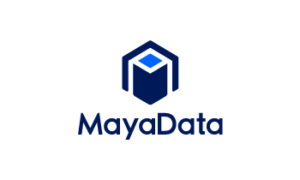In just one year Rook has experienced tremendous growth as an open source project. The project has seen container downloads multiply by 13X; with currently24 million container downloads of Rook. Since the beginning of the
“It is great to see the growing momentum and excitement around Rook,” said JaredWatts, Rook Senior Maintainer and founding engineer at Upbound. “This past year we’ve seen Rook get accepted as the very first storage project hosted by the CNCF, then graduate to an incubator project, and just really mature overall. As we continue to add support for more diverse storage solutions, Rook will lead the way for stateful applications in Kubernetes.”
Ceph Support Moves to Stable
Cephis now stable in Rook and production ready. Companies such as Pacific Research Platform and Crowdfox are already using Rook in production. Starting today Ceph support is available so users can begin to rely on it for their
- New Ceph focused CSI plugin that provides dynamically provisioned storage. In addition new Ceph versions can be deployed
- New Ceph versions can be deployed by the Rook operator (Mimic and Nautilus), and there is initial support for automatic upgrades between the versions.
- More robust coverage of diverse storage types by leveraging the ceph-volume tool
“I’m thrilled to see Rook’s support for provisioning and managing Ceph stabilize,” Sage Weill, founder and chief architect of Ceph. “We’re committed to making Ceph the obvious storage choice for Kubernetes, both as an object, block, and file storage provider for applications and as a well-behaved tenant.”
Additional Storage Solutions
Prior to this release, Rook offered Ceph, CockroachDB, and Minio as supported storage options. The list of supported storage solutions in Rook now doubles with this release adding new support for NFS, Apache Cassandra, and Nexenta EdgeFS. Current users of these storage systems will be delighted with the ease of use and simple experience offered by these new Rook operators as they begin to transition their workloads to Kubernetes.
Behind this growth is new storage support for the Rook framework for storage providers, which provides a common set of libraries and specs to drastically ease the burden of integration for storage solutions into cloud-native environments like Kubernetes. These newstorage providers will be alpha for this release and are expected to maturetowards being declared stable over the next few releases.
About Rook
Rook is the cloud-native storage orchestrator for Kubernetes. Started in November of2016, the Rook project joined the Cloud Native Computing Foundation as a Sandbox project at the beginning of
About Upbound
Upbound.io is changing the way managed services run across clouds. A GV backed company, Upbound is the company behind the open-source Cloud Native Computing Foundation(CNCF) storage orchestrator project, Rook. As leaders in the Kubernetesecosystem and the CNCF, Upbound is on a mission to provide managed services across clouds and on-premise environments
![]()



